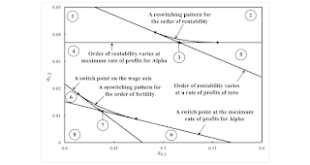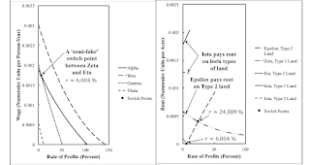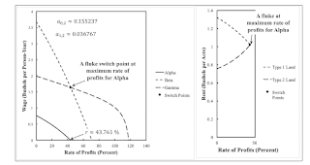1.0 Introduction I find the question in the title of this post hard to answer. I should probably say something about secondary literature, which I do not consider myself well-informed on. For purposes of this post, I ignore distinctions between socialism and communism. 2.0 Marx Wanted To Implement An Utopian Vision Of A Post-Capitalist Society You will sometimes find reactionaries assert that wherever Marxism was implemented, the government killed tens of millions. They are too ignorant...
Read More »Profiles Of Socialists From Jacobin
Jacobin is a recent, popular socialist magazine in the United States. I think the editor is Bhaskar Sunkara. Doubtless, some of you will have objections to some of the politics of some of their writers or interpretations of various things. One nice aspect of their magazine is that they provide profiles and write ups of lesser known historical figures and events in the past. Some of these are academics writing on their speciality. Some are book reviews. I have gathered together some...
Read More »The Reswitching Of The Orders Of Fertility And Rentability Revisited
Figure 1: A Part of a Parameter Space This post revisits my numerical examples in which I demonstrate the possibility of the reswitching of the order of fertility and of the reswitching of the order of rentability. Each of those posts presents a numeric example. In each, different ranges of the coefficients of production a0,2 and a1,2 are considered. This post combines those ranges, while still not considering the full parameter space, even for the slice for these coefficients. In the...
Read More »Georgists Should Study Post-Sraffian Economics
1.0 Introduction Here are some attempts to step back, but not very far, from some of the details in my numeric examples. 2.0 Henry George and Piero Sraffa Henry George's book Progress and Poverty misrepresents classical political economy. I cannot justify this claim, since I read George's book more than a decade ago. But George and his followers are absolutely correct on a couple of points. Marginalism developed by extending the theory of intensive rent, as in David Ricardo's...
Read More »An Example Of Non-Uniqueness In A Model Of Extensive And Intensive Rent
Figure 1: Wage and Rent Curves for a Numeric Example1.0 Introduction This post continues, with some repitition, my exposition of a model of extensive and intensive rent. In the example, the cost-minimizing technique is non-unique at a low enough wage or rate of profits. One cost-minimizing technique, Epsilon, illustrates a case of extensive rent. The other cost-minimizing technique, Iota, illustrates a case with both extensive and intensive rent. In this technique, a kind of absolute rent...
Read More »Direct And Indirect Methods, Axioms And Algorithms For The Choice Of The Technique
1.0 Introduction Kurz and Salvadori (1995) explain prices of production with two methods of analysis: the direct method and the indirect method. The indirect method, for the circular capital case, involves the creation of the wage frontier, the most well-known diagram to come out of Sraffa (1960). The direct method characterizes a system of prices of production by axioms, while the indirect method suggests algorithms for finding cost-minimizing techniques. 2.0 The Direct Method In both...
Read More »Antonio Labriola On The Philosophy Of Praxis
I think of Gramsci or Lukacs as the authors to read for understanding why Marxism might be called a "philosophy of praxis". Apparently, that phrase was first used by Antonio Labriola. His collection of letters to Georges Sorel was published as Socialism and Philosophy. In the following letter, "praxis" is translated as "practice" in the last two paragraphs. Rome, May 14, 1897 To return to my first argument, it seems to me that the following question is uppermost in your...
Read More »Prices Of Production For A Model Of Extensive And Intensive Rent
This post continues the treatment of this model. A number of conditions must be satisfied by quantity flows and prices to allow the economy to undergo smooth reproduction. The net output of each produced commodity meets the requirements for use: (B - A) q = d The amount of each quality of land that is farmed cannot exceed the available quantity: C q ≤ t A vector is greater than or equal to another if each element of the vector is greater or equal to the corresponding element...
Read More »Some Books About History Of Socialism And So On
[embedded content]Ryan Chapman On (The History Of) Socialism I found the above video fairly reasonable. Chapman tends to depict history as a debate about ideas, with little about material developments. In other videos, he seems unreliable on the new left, post modernism, and identity politics. My Marx includes a mathematical economist. This post provides some lists. As usual, I expect my lists are quite idiosyncratic. Some items, with more investigation, I might dislike. Books: Gary...
Read More »A Fluke Case For Extensive Rent
Figure 1: Wage Curves and Rent for an Example of Extensive Rent I more-or-less have a draft research article in five posts: post 1 post 2 post 3 post 4 post 5. I suggest that the current post can replace the fourth post. It is a variant on on this post. The analysis of the choice of technique in models of extensive rent can be based on the construction of wage curves, even though the outer envelope does not represent the cost-minimizing technique. The orders of fertility and rentability...
Read More » Robert Vienneau: Thoughts Economics
Robert Vienneau: Thoughts Economics



